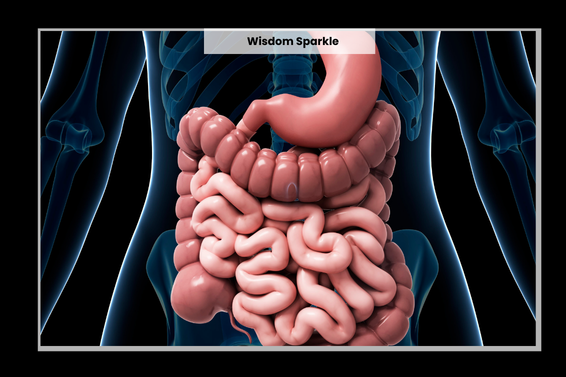
Acidity is something almost everyone faces at some point in life. That burning feeling in the chest, the sour taste in the mouth, or the sudden bloating after meals can be really uncomfortable. It doesn’t matter whether you are a student rushing through classes, a working professional skipping meals, or a homemaker juggling endless tasks—acidity can hit anyone, anytime.
In today’s busy lifestyle, wrong eating habits, stress, lack of sleep, and irregular routines are the main reasons behind acidity. Many people directly reach out for medicines, but that’s not always the best solution because the problem often comes back. The good news is—you don’t always need medicines to calm it down. Sometimes the solution might be found in your kitchen or by making simple modifications to your lifestyle.
With a few simple tricks, home remedies, and mindful eating habits, you can get quick relief from acidity right at home. The best part is that these tips not only give instant comfort but also help in preventing acidity from coming back in the long run.
In this blog, we will talk about easy tips, natural remedies, and lifestyle changes that will help you control acidity instantly and also keep your stomach healthy for the future and avoid acidity.
🌿 What is Acidity?
Acidity happens when your stomach makes more acid than it actually needs for digestion. Normally, this acid helps to break down food, but when there is too much of it, the acid starts moving upwards into the food pipe. That’s when you get a burning sensation in your chest or neck. This is generally known as acid reflux or heartburn.
Common Signs of Acidity
- Burning feeling in the chest or throat
- Sour or bitter taste in the mouth
- Stomach feels heavy, tight, or bloated
- Too much burping or gas
- Feeling uneasy or nauseous after meals
🍋 Quick Natural Remedies for Instant Relief
When acidity hits, you want quick relief. Here are some basic solutions you can try right now:
1. Drink Cold Milk
A glass of cold, plain milk can help neutralize the extra acid in the stomach. Avoid flavored or sweetened milk.
2. Chew Basil (Tulsi) Leaves
Tulsi leaves have soothing properties. Chew 4–5 leaves slowly to reduce acidity.
3. Ginger Tea or Raw Ginger
Ginger helps reduce excess acid and improve digestion. Quick relief can be obtained with a little piece of raw ginger or ginger tea.
4. Banana or Cucumber
Bananas are natural antacids. Eating a ripe banana or cucumber helps cool down the stomach.
5. Drink Coconut Water
Coconut water balances the pH in the stomach and relieves discomfort.
6. Fennel Seeds (Saunf)
Chewing fennel seeds after meals or drinking fennel tea helps to reduce acidity and bloating.
7. Eat Jaggery (Gur)
A small amount of jaggery acts as a cooling agent, preventing acidity.
8. Baking Soda Water
Add half a teaspoon of baking soda to a glass of water and drink. This neutralizes stomach acid quickly. (Not for regular use).
9. Cloves
Chew a clove slowly. It helps in producing saliva which balances stomach acids.
10. Apple Cider Vinegar (Diluted)
Drink warm water with 1 teaspoon of apple cider vinegar. Though acidic in nature, it balances stomach acid when taken in small amounts.
🥗 Best Foods to Eat for Acidity Relief
Diet plays a big role in controlling acidity. Some foods naturally keep the stomach cool and prevent acid buildup.
- Bananas – Act as natural antacids
- Cucumber – Keeps the stomach cool
- Oatmeal – Easy to digest, prevents acid reflux
- Green leafy vegetables – Low in fat, good for digestion
- Melons and watermelon – High water content, soothing effect
- Buttermilk (Chaas) – Traditional remedy for acidity
- Ginger – Helps in digestion
- Coconut water – Refreshing and alkaline in nature
🚫 Foods to Avoid When You Have Acidity
Just like some foods help, others can trigger acidity. To keep comfortable, try to avoid the following:
- Spicy and oily foods
- Fried snacks like samosa, pakora, chips
- Excess tea and coffee
- Carbonated drinks (cola, soda)
- Citrus fruits (orange, lemon) in excess
- Tomato-based gravies or sauces
- Onions and garlic (in large amounts)
- Alcohol and smoking
💡 Lifestyle Tips to Prevent Acidity
Aside from eating, your lifestyle influences your digestion. Making small changes can help you stay acidity-free.
- Eat Smaller Meals – Don’t overload your stomach at once. Eat 4–5 small meals instead of 2–3 heavy meals.
- Chew Food Properly – Take the time to chew your food properly. This makes digestion easier.
- Avoid Lying Down After Meals – Allow at least 2-3 hours before lying down or sleeping.
- Raise Your Head While You Sleep – Keep your head slightly raised with extra pillows to prevent acid from flowing back.
- Stay Hydrated – Drink enough water throughout the day to keep acid levels balanced.
- Wear Loose Clothing – Tight clothes around the stomach can increase acidity.
- Exercise Regularly – Light exercise, yoga, and walking all help with digestion. Avoid heavy exercise right after meals.
- Reduce Stress – Stress is a hidden cause of acidity. Try meditation, deep breathing, or relaxing hobbies.
- Maintain a Healthy Weight – Excess weight puts pressure on the stomach, which causes acid reflux.
- Fix Your Meal Timings – Eat at regular intervals and avoid eating late at night.
🌿 Simple Home-Based Drinks for Acidity Relief
You can try the following simple drinks at home:
- Jeera Water: Boil a teaspoon of cumin seeds in water, cool it down, and drink.
- Fennel Tea: Bring the fennel seeds to a boil, filter, and take a careful sip.
- Mint Water: Crush mint leaves in water and drink for a cooling effect.
- Aloe Vera Juice: Helps soothe the stomach lining and reduces irritation.
- Chaas with Black Salt: A traditional cooling drink that aids digestion.
🧘 Yoga for Acidity Relief
Yoga is a natural way to prevent and control acidity. Certain poses help in digestion and reduce acid reflux.
- Vajrasana (Diamond Pose) – Best after meals, improves digestion.
- Pawanmuktasana (Wind Relieving Pose) – Relieves bloating and gas.
- Bhujangasana (Cobra Pose) – Strengthens digestion and reduces acid buildup.
- Shavasana (Relaxation Pose) – Helps in stress relief and overall calmness.
🚑 When to See a Doctor?
While acidity is common, frequent or severe acidity should not be ignored. See a doctor if:
- Acidity happens more than 2–3 times a week
- You feel severe chest pain
- Difficulty in swallowing
- Unexplained weight loss
- Persistent vomiting or black stools
These can be signs of a more serious condition like GERD (Gastroesophageal Reflux Disease) or ulcers.
✅ Final Thoughts
Acidity is very common, but the good news is it can be managed easily with quick home remedies, the right foods, and small changes in your daily habits. Instead of always reaching for medicines, you can try simple tips like drinking cold milk, chewing a few basil leaves, sipping fresh coconut water, or having a ripe banana. These remedies work naturally and give quick relief without any side effects.
At the same time, it’s important to focus on long-term prevention. Eating smaller, lighter meals, avoiding oily and spicy foods, not skipping meals, and not eating late at night can make a huge difference. Staying stress-free, getting enough sleep, and doing light exercises or yoga daily also help keep your stomach healthy.
Remember, your body is always giving you signals when something is not right. Listen to it carefully. If you feel burning, bloating, or discomfort, take a moment to relax and follow these simple tips. Over time, these small changes will make a big difference, and you’ll notice that acidity attacks happen less often.
By practicing mindful eating, healthy routines, and natural remedies, you can say goodbye to acidity and enjoy a happier, more comfortable life. Your stomach will feel lighter, digestion will improve, and you’ll have more energy to enjoy your day. Taking care of your stomach is not just about avoiding discomfort—it’s about improving your overall health and well-being.







